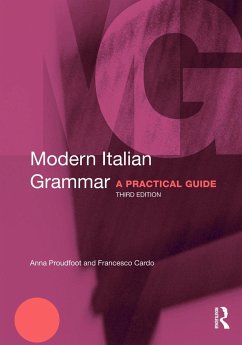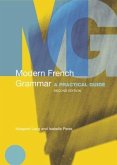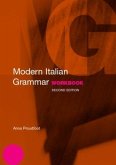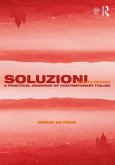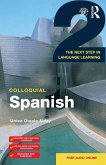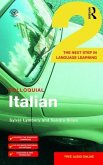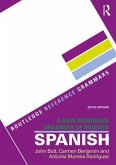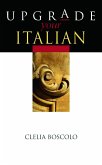This new edition of the Modern Italian Grammar is an innovative reference guide to Italian, combining traditional and function-based grammar in a single volume. With a strong emphasis on contemporary usage, all grammar points and functions are richly illustrated with examples.
Implementing feedback from users of the first edition, this text includes clearer explanations, as well as a greater emphasis on areas of particular difficulty for learners of Italian. Divided into two sections, the book covers:
traditional grammatical categories such as word order, nouns, verbs and adjectiveslanguage functions and notions such as giving and seeking information, describing processes and results, and expressing likes, dislikes and preferences.
This is the ideal reference grammar for learners of Italian at all levels, from beginner to advanced. No prior knowledge of grammatical terminology is needed and a glossary of grammatical terms is provided. This Grammar is complementedby the Modern Italian Grammar Workbook Second Edition which features related exercises and activities.
Implementing feedback from users of the first edition, this text includes clearer explanations, as well as a greater emphasis on areas of particular difficulty for learners of Italian. Divided into two sections, the book covers:
traditional grammatical categories such as word order, nouns, verbs and adjectiveslanguage functions and notions such as giving and seeking information, describing processes and results, and expressing likes, dislikes and preferences.
This is the ideal reference grammar for learners of Italian at all levels, from beginner to advanced. No prior knowledge of grammatical terminology is needed and a glossary of grammatical terms is provided. This Grammar is complementedby the Modern Italian Grammar Workbook Second Edition which features related exercises and activities.
'It's structure is innovative: first part an overview of structures for reference and the second organised by functions, which gives a host of useful examples of very up to date and usable language. The index is therefore essential for finding particular points because the content follows a different pattern from other grammar books. I tried finding points which I have had queries about over the last year and could locate them easily.It's much better to have a reference to a particular section (eg.6.5.14) than to have just a page number and have to scan all the page to find the point needed.
I think this will be an essential handbook for all tutors of Italian, particularly native speakers who know what one says but cannot explain why. The book will also be very useful for students as the explanations are as simple as possible, and each example is followed by an accurate and natural-sounding equivalent in English, so there is no room for uncertainty.' - Sue Maitland, City of York Adult and Community Education Service
I think this will be an essential handbook for all tutors of Italian, particularly native speakers who know what one says but cannot explain why. The book will also be very useful for students as the explanations are as simple as possible, and each example is followed by an accurate and natural-sounding equivalent in English, so there is no room for uncertainty.' - Sue Maitland, City of York Adult and Community Education Service

